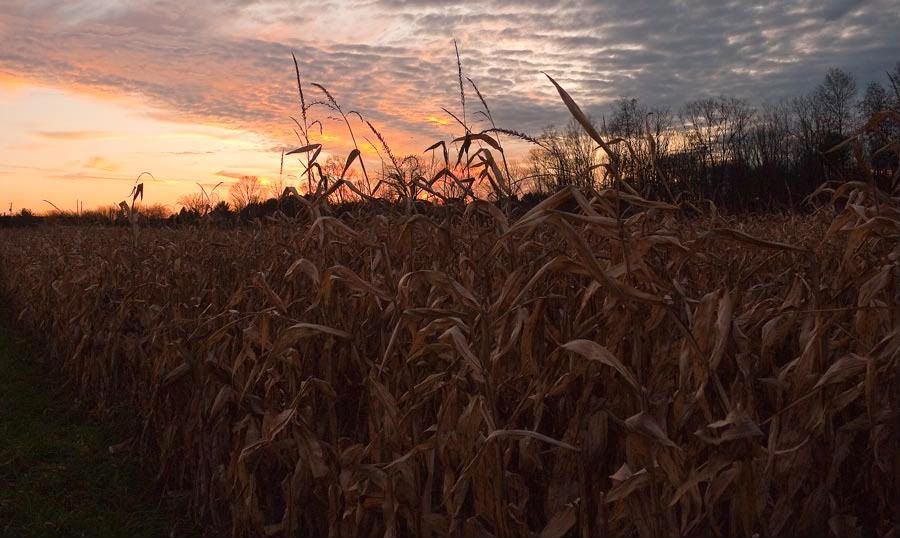
November Evening Corn ( Panasonic G1, Lumix 14-45mm f3.5)
The leaves have mostly fallen. The forests, viewed from afar now reflect the grey of tree bark, the light tan of beech leaves, which will stay on the trees till spring, and dull brown of spent foliage on the forest floor.
At first glance, late fall in the Northeastern U.S. offer slim pickings for landscape photography.
After the blazing colors of mid fall, which occur in mid-October in the mountains of eastern Pennsylvania, Late October, and November can be an imaging challenge. I’m the photographer for a calendar we publish every year. Shooting November’s image is a definitely feels more difficult than for other months (except perhaps March, and August).
The transition from autumn splendor to the dull scenery of late fall can occur fairly quickly. One good windy storm after “peak leaves” occur, and suddenly the colorful forest canopy is gone. What had been a “target rich” photographic environment can vanish overnight.
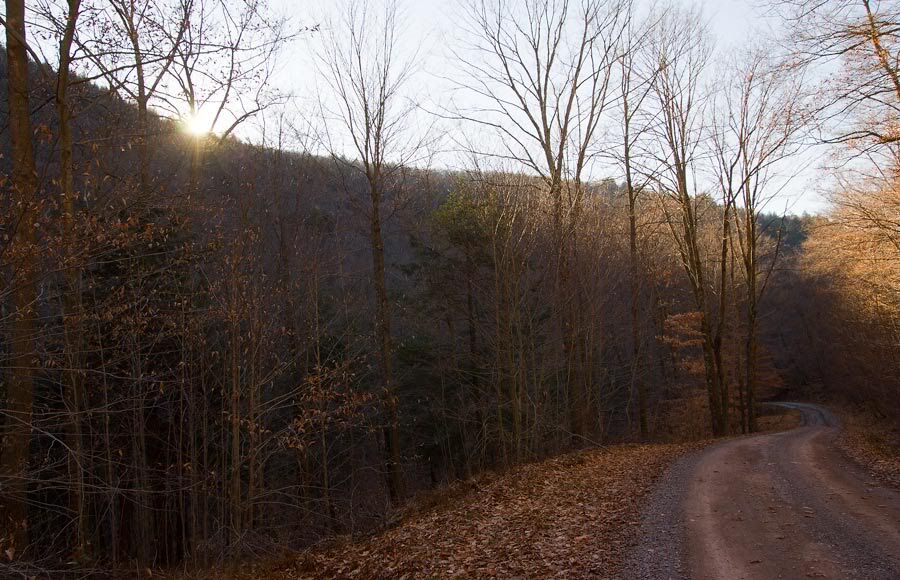
Early Sunset, Jamison City Road (Fuji S5, Nikkor 16-85 VR f3.5)
Still and all in some ways, I like the late season. You need to be observant to be successful. You can’t always rely on the cheap thrill of iridescent sugar maples and crimson oaks. No more cheerful outdoor scenes with people happily playing touch football, because in November, it’s getting cold, and the people are all inside watching football. To be effective and compelling, late fall photography needs to focus on subtle things.
Contrast is a wonderful theme for this season. If you look hard enough (and know where to look) there will always be residual color, even into the early winter.
First, in cool dry air of fall, sunsets become more spectacular even as the foliage fades.
In our area, some maples and oaks delay their fall color, and hold their leaves until later in the year. Tamaracks can have brilliant yellows late in the year. Shrubs such as Blueberry and Hawthorne retain their brilliant reds long after the main foliage has disappeared. One strategy is to find these stragglers, and feature their beauty in a way that juxtaposes it against the dull post-foliage background. Longer focal lengths and wider apertures can be useful to help isolate these small remaining patches of interest, and blur the background.
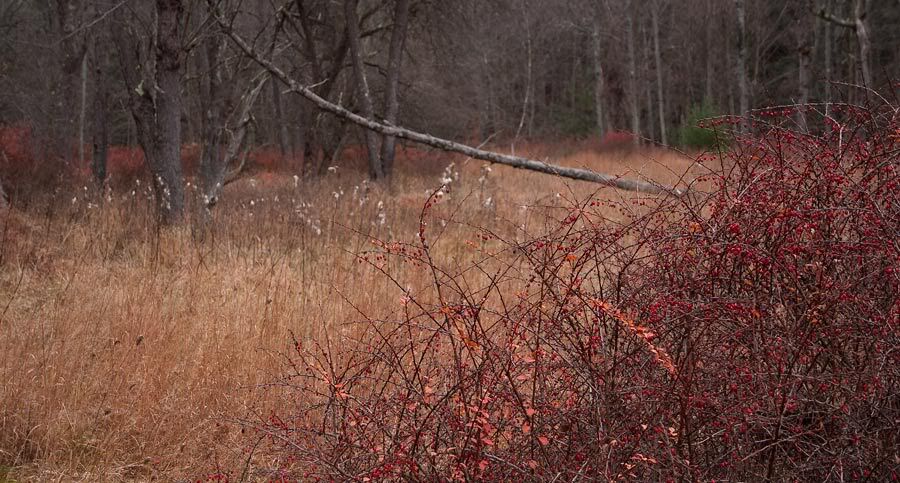
Hawthorne in the Sand Springs Valley (Fuji S5, Nikkor 16-85VR f3.5)
It’s helpful if your images depict a seasonal tradition, and hopefully for the audience, a pleasant memory. Scenes involving holidays are an obvious possibility.
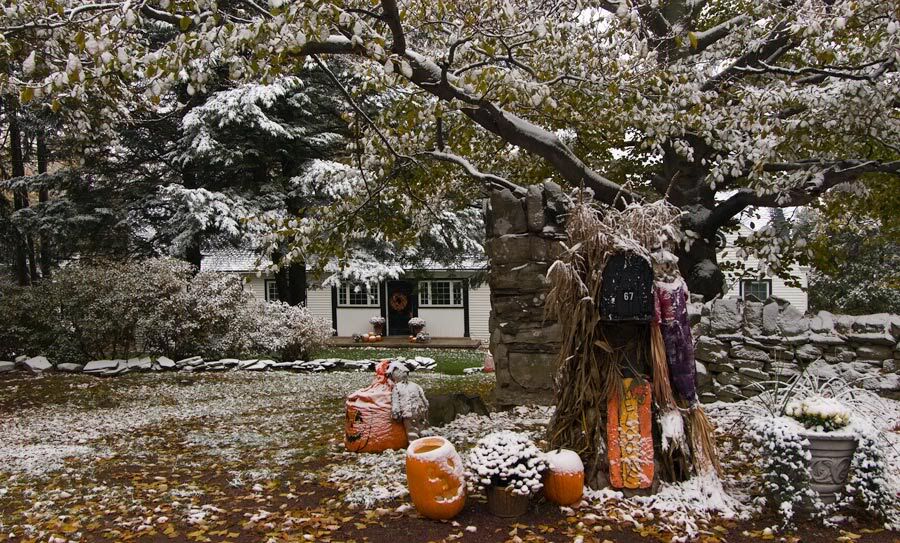
November Snow in Glen Summit (Olympus E-510,Zuiko 11-22mm f2.8)
In our part of Pennsylvania, hunting, particularly deer hunting, is a deep-seated passion, and for many evokes strong memories of fellowship and traditions enjoyed in late autumn. I often rove the on the day before “buck season” to scout for interesting scenes among the hunting towns in the “Endless Mountains” region to the north of my home.
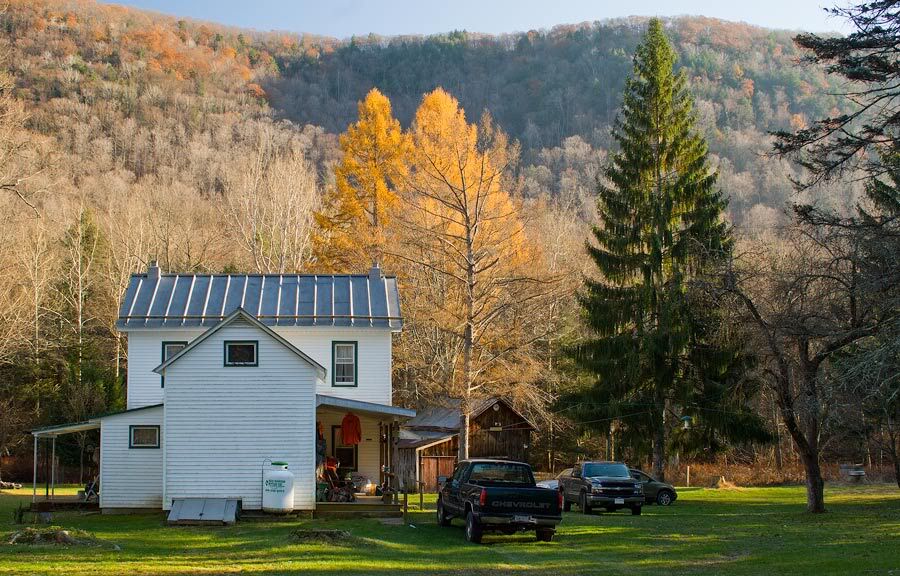
Hunting Cabin at Red Rock (Nikon D2x, Tokina 28-80mm f2.8)
Another opportunity involves the transition between seasons, and the scenes at the cusp can be worth recording. The first frost, a late fall dusting of snow, the first freeze up of a forest pond, or an unexpected ice storm, offer opportunities to the alert photographer.
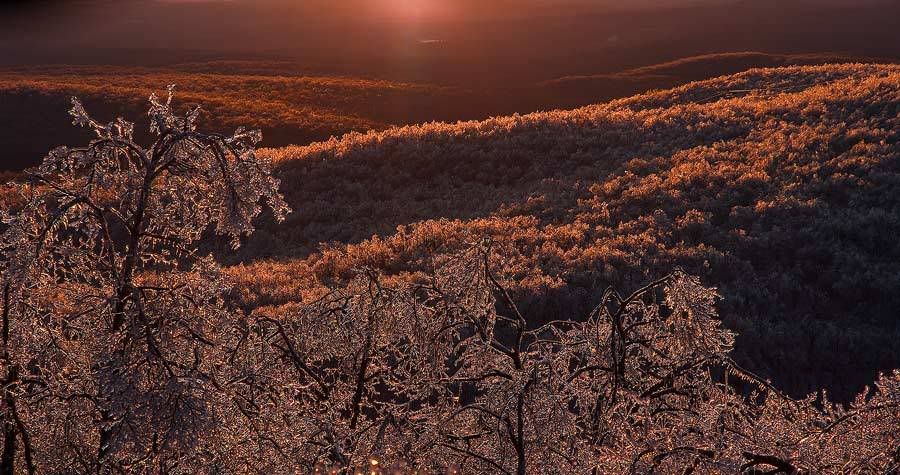
Ice Storm on Penobscot (Fuji S5, 16-85mm f3.5)
As always, good landscape images should tell a story, in this case of a natural world that is “battening down” to endure the cold months to come.
I believe, that the care and imagination one needs to find beauty in relatively bleak periods during the year, can make us cleverer photographers when seasons cooperate.

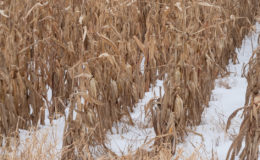
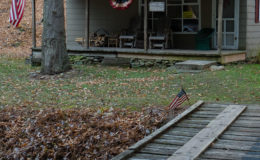
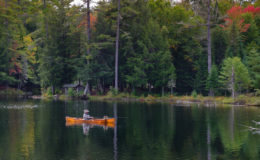
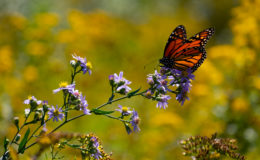
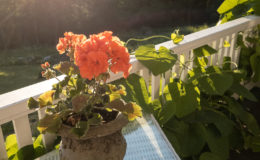
Article Comments